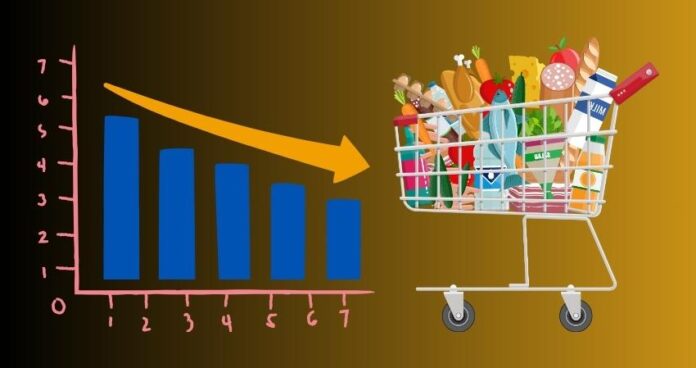The Sensitive Price Indicator (SPI) eased by 0.52% for the week ending on September 19, 2024, largely driven by falling fuel and food prices.
On a year-on-year basis, the SPI recorded a 12.72% increase compared to the same period in 2023.
According to the latest data released by the Pakistan Bureau of Statistics (PBS), diesel saw a drop of 5.00%, onion prices fell by 4.45%, Petrol by 3.88%, Tomatoes by 1.93%, Sugar by 0.70%, Potatoes and LPG by 0.57% each, Cooking Oil 5 Litre by 0.45%, Pulse Moong by 0.44%, Pulse Masoor by 0.30%, Cigarettes by 0.25% and Pulse Mash by 0.24%.
Despite the overall decline in the SPI, prices of certain items rose during the week. Chicken prices increased by 1.49%, while Pulse Gram saw a rise of 0.83%. Cooked beef and eggs both saw slight increases of 0.72% and 0.69%, respectively. Non-food items such as shirting and georgette also experienced price increases.
Of the 51 items tracked during the week, the prices of 17 items (33.43%) increased, while 15 items (29.41%) saw declines. The remaining 19 items (37.25%) showed no change in price.
The SPI recorded a 12.72% YoY increase compared to the same period last year. Notably, gas charges for Q1 surged by a staggering 570%, while the price of onions increased by 74.62%. Pulse Gram saw a 57.34% increase, while powdered milk and beef experienced rises of 25.45% and 25.31%, respectively.
However, some items witnessed price declines over the year. Wheat flour, for example, saw a 38.14% drop, while petrol and diesel prices fell by 24.73% and 24.06%, respectively. Electricity charges for Q1 also decreased by 13.47%, providing some relief to consumers.




